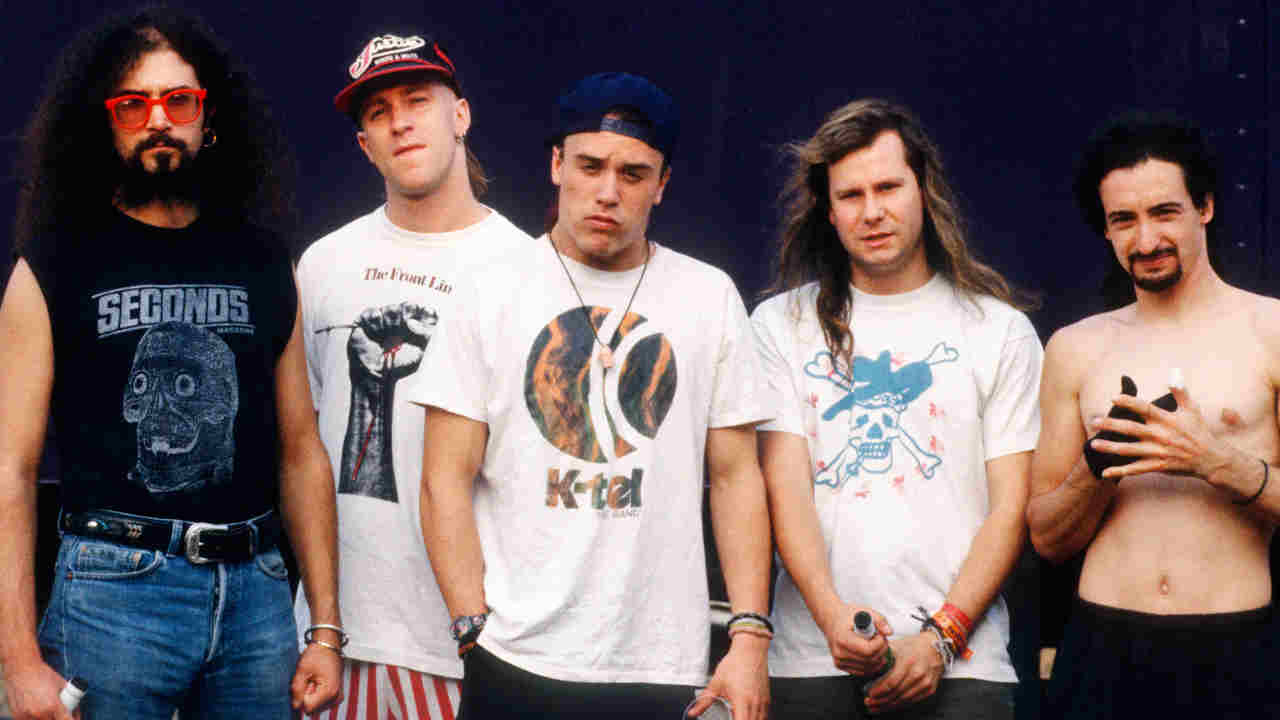The 15 songs that defined Dillinger Escape Plan
In 2016 we asked Greg Puciato to pick the ultimate Dillinger Escape Plan playlist
5. Milk Lizard (Ire Works, 2007)
“This was when I really started to feel like writing choruses was a strength of mine. After this song was written, it gave me a lot more confidence in being able to write a good chorus. I had what’s there now, and then I really just got in my head about it and probably wrote 40 variations of it and it just mutated so far that it was barely recognisable as a lead vocal line.
Finally, I think Ben was like, ‘Dude, what are you doing? The first one you had was awesome’, so I just went back to it. That was the beginning of vocal melodies coming really fast for me and that whole song came out, front-to-back with lyrics, in about an hour. I felt really guilty about it, like I didn’t put in enough work or something. Now I know that the work is done beforehand, the writing is done beforehand. The output is just accessing what’s already in there.”
4. Farewell, Mona Lisa (Option Paralysis, 2010)
“This is an obvious one and I feel like this is one of the two or three songs that I’d put in a time capsule to show people our band. It was the first song where we made a conscious effort to put the amount of diversity we had on an entire record into one song. We had all these different kinds of songs on records, but we hadn’t quite figured out how to tie them all together into one song and make it seem like a smooth journey within a five-minute time period.
Horse Hunter on Ire Works was starting to get to that point, but this was the real breakthrough. It was a real conscious effort to do that on Option Paralysis, and we wanted to show people right away on the opening track. I feel pretty good about the fact that we accomplished that. It was also Billy’s [Rymer] first record with us. He needed to come hard to quell the uncertainty of a new drummer on the second record in a row, and he just slams right outta the gate.”
3. Widower (Option Paralysis, 2010)
“This song kept stretching the boundaries of what we could do. Ben plays piano and it’s mostly clean singing – it’s kind of like ‘How far can you push your audience?’ If you came on board when we were nothing but a technical grindcore band and you can stomach us singing a fucking piano ballad, we’re taking you pretty far – shaking the tree pretty hard and seeing which leaves manage to cling to the branches.
It’s a real credit to our audience – they really are awesome people, because I don’t know many people who could listen to one band do such drastically different types of stuff. I’m glad they do, because most people seem to really like to put bands in categories of what to expect.”
2. Room Full Of Eyes (Option Paralysis, 2010)
“I’m really into doom, and drone, and slower riffs that go on forever ‘eternal riff stretching into the end of time’ type stuff. The end of Room Full Of Eyes – in the context of what we do – is slow. The end of that song is slow and repetitive. It’s not slow and repetitive if you’re Neurosis, but for us that was the slowest, heaviest, most repetitive thing we had done up to that point – playing with the dynamics of a riff, within the riff, instead of switching to a new one. Songs like Crossburner and Happiness Is A Smile wouldn’t exist if we hadn’t done the end of Room Full Of Eyes.”
Sign up below to get the latest from Metal Hammer, plus exclusive special offers, direct to your inbox!
1. One Of Us Is The Killer (One Of Us Is The Killer, 2013)
“To me, this whole record is a highlight. If I could fucking put 11 Dillinger songs on a Greatest Hits, it might just be that album, because I feel like we took everything that we started doing on Miss Machine and refined it to a point that I’m totally happy with. If One Of Us Is The Killer was the only record that people ever heard by us, I’d be completely happy about that – it’s the time capsule record of our band. Prancer, I feel, is one of the most vicious songs we’ve ever done. When I Lost My Bet is one of the best-written ‘crazy’ songs we’ve ever done. One of Us Is The Killer is the pinnacle of the melodic aspect of what we do.
My vocals are the best on that record by far of any Dillinger record, which was something I really, really aimed high for; to me, it’s a band achievement and personal one. It was a huge turning point in my development as a person, as an artist, everything. I wanted us to write the record that was going to beat Miss Machine, that was going to take what we did on the record to the furthest we could take it, and I truly, truly feel like we did. I feel super happy about it. But that leaves us with having to do something that changes direction or isn’t in that vein or a refinement of process.”
- 1
- 2
Current page: The 15 songs that defined The Dillinger Escape Plan (#5 - 1)
Prev Page The 15 songs that defined The Dillinger Escape Plan (#15 - 5)Louder is the ultimate resource for alternative music coverage and the home of iconic rock brands Classic Rock, Metal Hammer and Prog. With a combined reach of over five million followers across social media, we're the largest and most influential alternative music website in the world.

